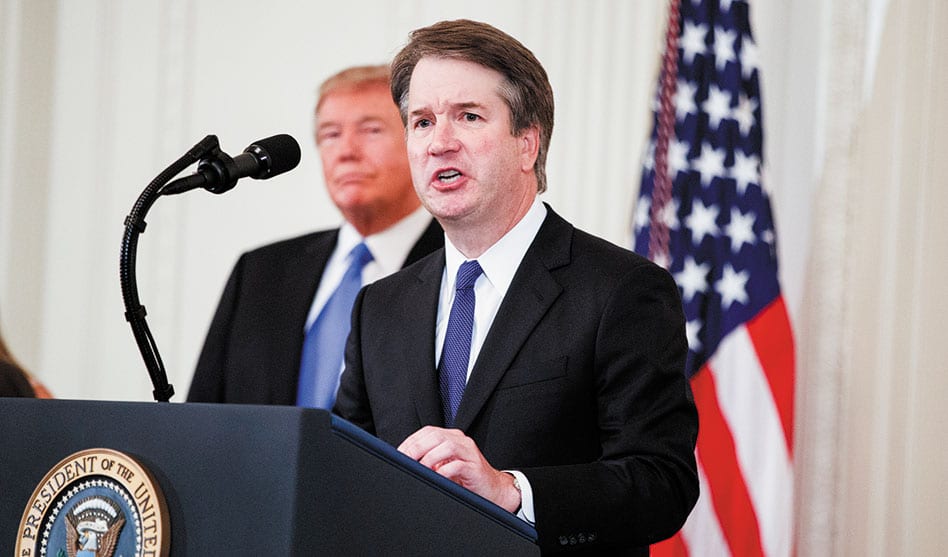Brett Kavanaugh
While most people thought the Obergefell marriage equality ruling settled many things involving LGBT rights, cases aimed at chipping away at that ruling began making their way up to the Supreme Court almost before the ink dried on the signatures on Obergefell. This year saw one of the most well-known of those cases have its ultimate day in court.
That ruling, known as Masterpiece Cake ruling, was based on the question of whether a baker could refuse to make a cake for a same-sex wedding. And the outcome was decidedly undecided.
A majority of the justices on the Supreme Court weren’t happy with the way the Colorado Human Right Commission handled the case initially.
They felt the bakery owner’s religious rights weren’t respected.
So the court found in his favor.
But the court didn’t rule that a baker — or photographer or florist — could be forced to sell goods and services to everyone or could opt out for religious reasons. And the ruling didn’t make any judgment about state laws that forbid discrimination based on sexual orientation.
All Masterpiece Cake really decided was that Colorado mistreated the owner of Masterpiece Cakeshop. His business wouldn’t be penalized for refusing service to the couple based on their sexual orientation.
That ruling was one of the last ones written by Justice Anthony Kennedy, a Ronald-Reagan appointee who had ruled for marriage equality and LGBT rights in four earlier decisions, surprising everyone. Kennedy retired at the end of the term, setting the stage for Donald Trump to appoint a second justice to the Supreme Court (He appointed Neal Gorsuch in 2017).
The first of Kennedy’s pro-LGBT rulings was in Romer v. Evans in 1996, which struck down a Colorado law invalidating local nondiscrimination ordinances and preventing LGBT people from being recognized as a protected class. Then in 2003, Kennedy wrote the decision in Lawrence v. Texas, which struck down sodomy laws used to criminalize LGBT people.
In 2013, he wrote the opinion in U.S. v. Windsor, which struck down parts of the Defense of Marriage Act, and followed that up two years later by writing the opinion Obergefell v. Hodges that established marriage equality across the country.
Because of Kennedy’s previously-solid support for LGBT rights, his Masterpiece Cake decision was a surprise to many and a disappointing end to his career. And the LGBT community worried about who would replace him on the court.
As it turned out, Trump’s nominee to replace Kennedy was Brett Kavanaugh, a judge in the D.C. circuit who’s had dozens of serious complaints filed against him, primarily from women alleging sexual misconduct dating back as far as his school years. One accuser, Dr. Christine Blasey Ford, testified to Congress that Kavanaugh had sexually assaulted her when they were in college.
Sen. Amy Klobuchar questioned Kavanaugh about his drinking. When she asked him if he ever blacked out from drinking, he answered, “ It’s — you’re asking about, you know, blackout. I don’t know. Have you?”
She had to direct him to answer the question.
Despite his hostility to senators during the hearing, Kavanaugh’s nomination passed the committee by one vote. On the Senate floor, he was approved by the slimmest vote ever for a Supreme Court nominee, and progressives feared the worst for upcoming cases.
But in one of his first rulings as a Supreme Court justice, Kavanaugh surprised everyone — and angered the conservatives who had so staunchly supported and defended him — when he voted, along with Chief Justice John Roberts, not to accept for review two cases on whether states can block Planned Parenthood and other abortion providers from their Medicaid programs.
— David Taffet












